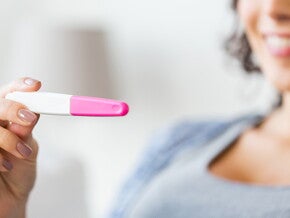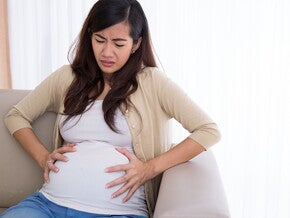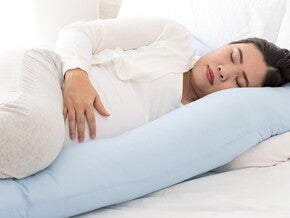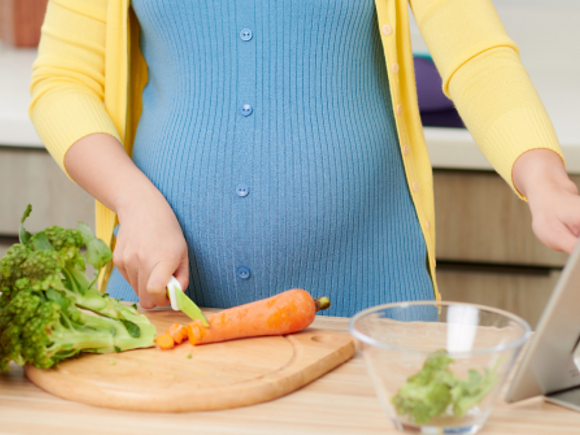
5 ways to reduce your child’s chances of having allergies
Family history isn't the whole story - your diet and lifestyle during pregnancy can influence your child's risk of developing allergies.
1) EAT A VARIETY OF FOODS
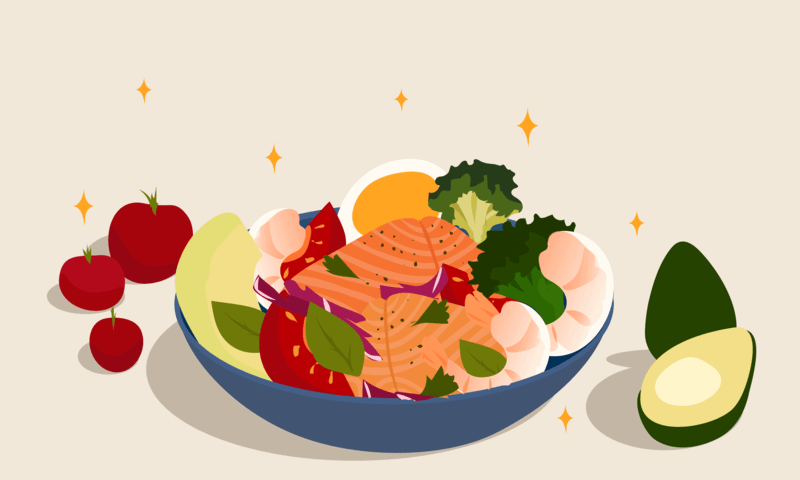
EAT A VARIETY OF FOODS
You don't need to avoid any specific foods because you're worried about passing on allergies. In fact, some scientific studies have shown that the reverse is true. Children born to non-allergic moms who ate more fish, or whole peanuts, and tree nuts, had fewer allergic symptoms during their early years than children born to moms who didn't eat these foods. Why? Scientists can't say for sure but emerging research suggests that the healthy fats found in fish (including Omega-3 fatty acids such as DHA) and nuts may play a role.
2) CONSIDER CERTAIN PROBIOTICS

Specific types of probiotic supplements during pregnancy and breastfeeding might help prevent eczema in some children.
Studies have shown that children with a family history of allergy (mom, dad, or sibling) whose moms consumed a specific probiotic supplement during pregnancy and breastfeeding had a lower risk of developing eczema than similar children whose moms didn't include the probiotic.
3) STAY AWAY FROM SMOKE

Smoking during pregnancy increases the chances of your child having allergies, including asthma. Thankfully, many moms-to-be are motivated to quit smoking during this time. If you need help, talk to your healthcare provider. Stay away from smoky environments and second-hand smoke, too.
4) BREASTFEED AFTER BIRTH

Along with many important immune factors, breast milk contains "friendly" bacteria that can help boost your child's immune system. This is especially important for children who are born by caesarean section because they miss out on this "friendly" bacteria in the birth canal. It has been suggested that this is why children born by C-section tend to have a greater risk of some types of allergy. If you have a C-section, breastfeed your child as soon as possible after birth.
5) FEEDING & LACTATION
You may have heard that exclusive breastfeeding for the first six months has health benefits for your child. Did you know that scientists also recommend exclusive breastfeeding for the first months to reduce the chances of cow's milk allergy, eczema, and wheezing during the toddler years? If you decide not to breastfeed exclusively, please refer to your healthcare professionals for further advice on lactation.
Sources
- Alexander DD, Cabana MD. Partially hydrolyzed 100% whey protein infant formula and reduced risk of atopic dermatitis: A meta-analysis. J Pediatr Gastroenterol Nutr 2010; 50:422–30.
- Biasucci G, Rubini M, Riboni S et al. Mode of delivery affects the bacterial community in the newborn gut. Early Hum Dev 2010; 86 Suppl 1:13-5.
- Bunyavanich S, Rifas-Shiman SL, Platts-Mills TA, et al. Peanut, milk, and wheat intake during pregnancy is associated with reduced allergy and asthma in children. J Allergy Clin Immunol 2014; 133:1373-82.
- Cuello-Garcia CA, Brozek JL, Fiocchi A et al. Probiotics for the prevention of allergy: A systematic review and meta-analysis of randomized controlled trials. J Allergy Clin Immunol 2015; 136(4):952-61.
- Dotterud CK, Storrø O, Johnsen R et al. Probiotics in pregnant women to prevent allergic disease: a randomized, double-blind trial. Br J Dermatol 2010; 163:616–23.
- Fleischer DM, Spergel JM, Assa’ad AH et al. Primary prevention of allergic disease through nutritional interventions. J Allergy Clin Immunol Pract 2013; 1:29-36.
- Frazier AL, Camargo CA, Malspeis S et al. Prospective study of peripregnancy consumption of peanuts or tree nuts by mothers and the risk of peanut or tree nut allergy in their offspring. JAMA Pediatr 2014; 168(2):156-62.
- Hunt KM, Foster JA, Forney LJ et al. Characterization of the diversity and temporal stability of bacterial communities in human milk. PLoS.One. 2011; 6(6):e21313.
- Kalliomaki M, Salminen S, Arvilommi H, et al. Probiotics in primary prevention of atopic disease: a randomized placebo-controlled trial. Lancet 2001; 357:1076–9.
- Kim JY, Kwon JH, Ahn SH et al. Effect of probiotic mix (Bifidobacterium bifidum, Bifidobacterium lactis, Lactobacillus acidophilus) in the primary prevention of eczema: a double-blind, randomized, placebo-controlled trial. Pediatr Allergy Immunol 2010: 21: e386–93.
- Koplin J, Allen K, Gurrin L et al. Is caesarean delivery associated with sensitization to food allergens and IgE-mediated food allergy: a systematic review. Pediatr.Allergy Immunol 2008; 19(8):682-7.
- Kuitunen M, Kukkonen K, Juntunen-Backman K et al. Probiotics prevent IgE-associated allergy until age 5 years in cesarean-delivered children but not in the total cohort. J Allergy Clin Immunol 2009; 123:335-41.
- Palmer DJ. Early nutrition and its effect on allergy development. In: Saavedra JM, Dattilo AM (Eds.), Early Nutrition and Long-Term Health: Mechanisms, Consequences, and Opportunities. Elsevier, Oxford, 2017; (Chapter 7).
- Papathoma E, Triga M, Fouzas S et al. Cesarean section delivery and development of food allergy and atopic dermatitis in early childhood. Pediatr Allergy Immunol 2016; 27: 419–24.
- Rautava S, Kalliomaki M, Isolauri E. Probiotics during pregnancy and breastfeeding might confer immunomodulatory protection against atopic disease in the infant. J Allergy Clin Immunol 2002; 109:119-21.
- Rautava S, Kainonen E, Salminen S et al. Maternal probiotic supplementation during pregnancy and breast-feeding reduces the risk of eczema in the infant. J Allergy Clin Immunol 2012; 130:1355-60.
- Sanchez-Valverde F, Gil F, Martinez D et al. The impact of caesarean delivery and type of feeding on cow's milk allergy in infants and subsequent development of allergic march in childhood. Allergy 2009; 64(6):884-9.
- von Berg A. Dietary interventions for primary allergy prevention – What is the evidence? World Rev Nutr Diet 2013; 108:71–8.
- Ward TL, Hosid S, Ioshikhes I et al. Human milk metagenome: a functional capacity analysis. BMC Microbiol 2013; 13:116. doi: 10.1186/1471-2180-13-116.
- Woo Baidal J, Locks L, Cheng E et al. Risk factors for childhood obesity in the first 1000 days: A systematic review. Am J Prev Med 2016; 50(6):761-79. Stay away from smoke
Last revised: August, 2016








